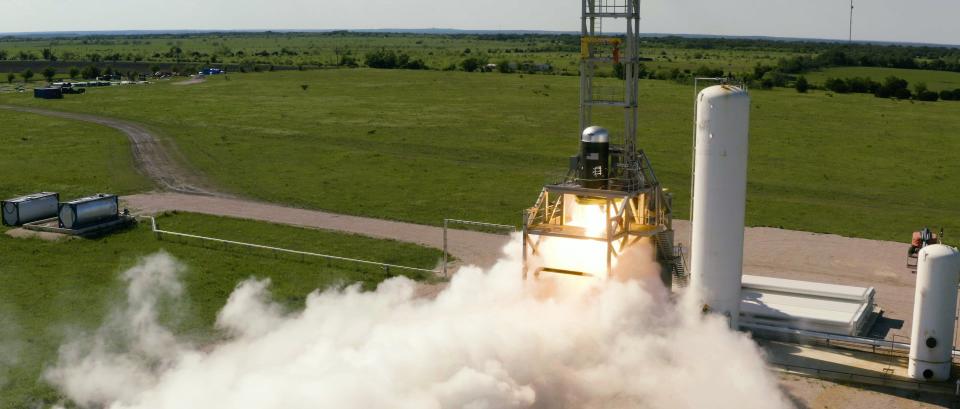Opinion: The sleeping giant of Texas space awakens
Texas is finally taking the leap into space, and not a moment too soon. In fact, in 2011, I moved back to the home of my ancestors and family to awaken "the sleeping giant" of Texas to the possibilities of space. I even wrote an opinion piece in this newspaper calling for a Texas Space Commission. In the article, I discussed how other states were investing millions to recruit this new industry, citing "Space Florida" as an example. Meanwhile, Texas had one person overseeing both aero and space for the entire state.
In parallel, a small group of citizens formed the Texas Space Alliance to push commercial space in Texas. During its two-year life, we held the first-ever summit of Texas space companies (that also met with then-Governor Perry), and co-authored and helped pass a liability law enabling companies like Blue Origin to fly citizen astronauts, as they are doing today near Van Horn.

This year Governor Abbott and the legislature are establishing the Space Commission. While the commercial space race is well under way, the Texas Space Commission (TSC) is arriving early enough to make a big difference in how we benefit from this milestone in history.
The TSC's over $300 million budget fits the "giant" analogy. We aren't just entering the race but showing up to win it. For example, Space Florida is spending $6 million this year. Much less, but they've been spending in that range since 2007. Importantly, Florida documented over $5 billion in economic impact from their investment, and predictions are that space companies in the state will generate $1 billion of annual economic activity by 2030.
If Texas can emulate Florida's model, this may be one of the most transformative investments in the Lone Star State's future - ever. The key is investing our tax money wisely.
A number that large involves concrete being poured somewhere. Probably Houston, where this effort originated. We will see shiny new space facilities related to NASA's Moon and Mars program and maybe even commercial space. All good. I also assume budget increases in major university space departments. Again, excellent.
Other priorities are funding for an inclusive Texas STEAM-space education pipeline starting in elementary schools and basic space research and astronomy. For example, I'm working with a team to place a telescope in every middle school in the state. Workforce development is also critical. Space companies need a wide range of white- and blue-collar talent - as it really isn't all rocket science.
The big economic returns will come from business opportunities. Space Florida was given tools to leverage facilities, engage in contractual relationships, and make appropriate investments in companies deemed valuable to the state's long-term plans. By supporting a strong startup community and luring early-stage companies, Florida became a nexus for the space innovators building tomorrow's billion-dollar companies. Now it's our turn.
The key to the Texas government's economic rocket ship is to not operate like the government. Being a startup itself, the TSC can study experiences in government-enabled space business hubs like Florida, Colorado, and New Mexico and leapfrog their designs.
The prime requirement for a successful launch is for the TSC to be on board with the idea that its real job is not just to build buildings - but to also invest in education and a Texas space economy that can carry our children and grandchildren to the stars.
RELATED: Tumlinson: When it comes to the future of the space industry, Texas looks backward (statesman.com)
RELATED: SpaceX, Firefly, Central Texas could see boost from new space bill (statesman.com)
In 2011, I declared the first person to step on Mars would be a private citizen, arriving in a rocketship built and launched from Texas. With the large and welcome space investments being made by private citizens in Texas and the great work of the legislature and governor in providing this launch pad, we are go for lift-off!
Tumlinson lives in Austin and is the founder of the venture capital firm SpaceFund, and the not-for-profit EarthLight Foundation. He hosts the podcast "The Space Revolution" on iRoc Space Radio.
This article originally appeared on Austin American-Statesman: Opinion: The sleeping giant of Texas space awakens

